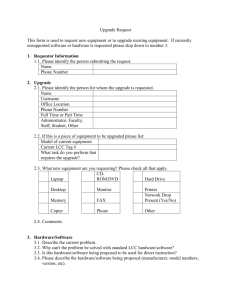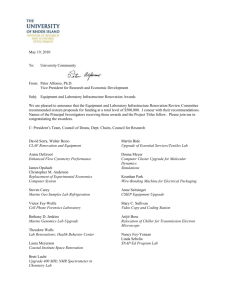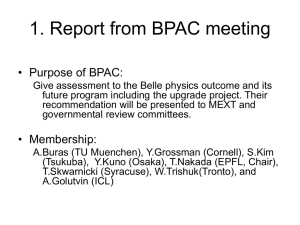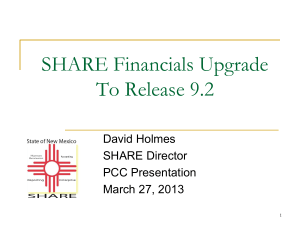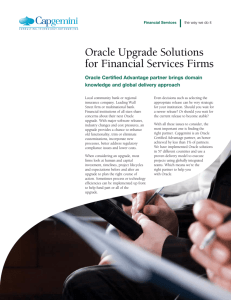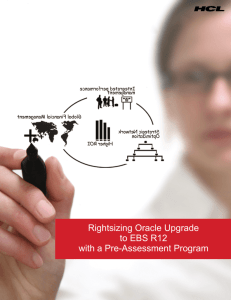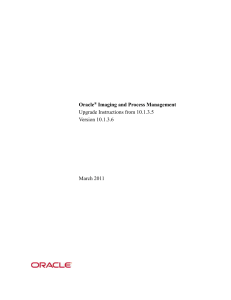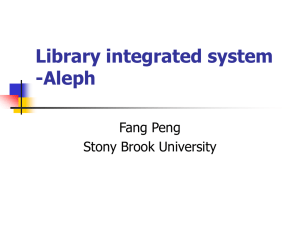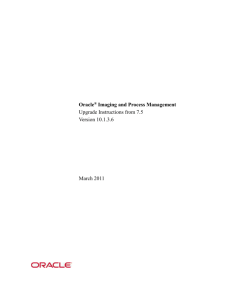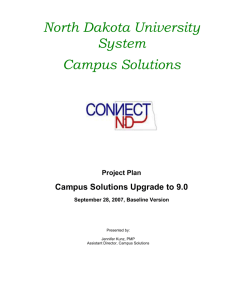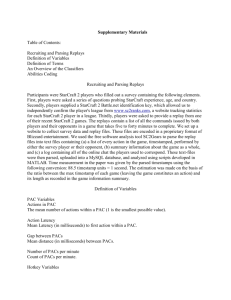Some thoughts from Christine Moulin at MIT re
advertisement
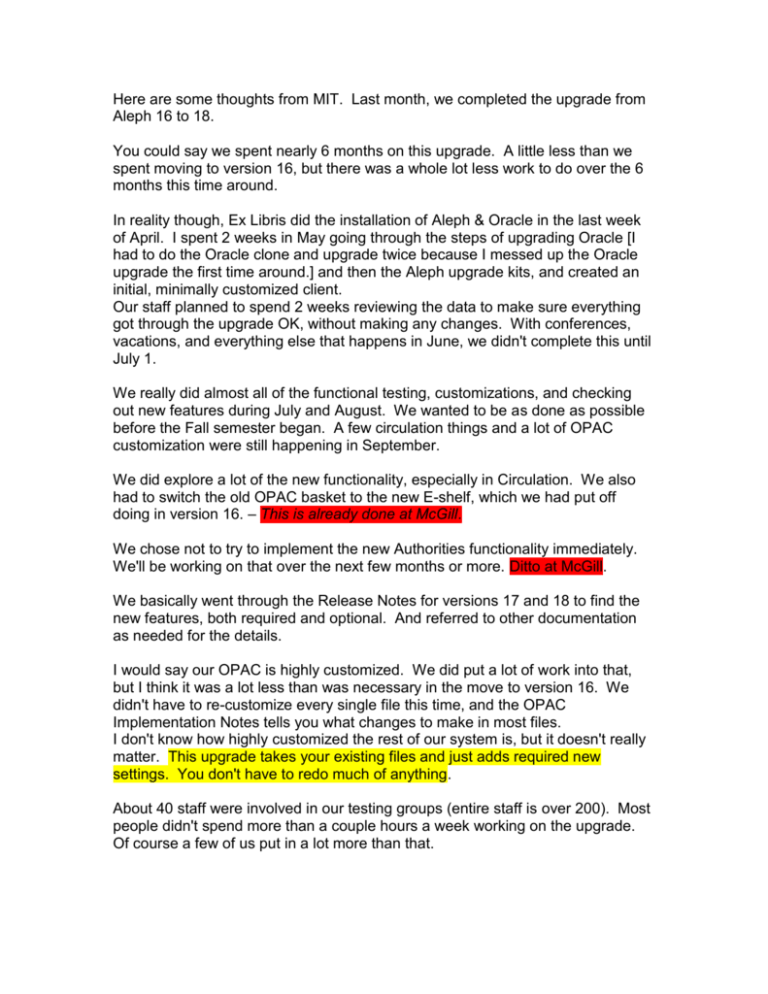
Here are some thoughts from MIT. Last month, we completed the upgrade from Aleph 16 to 18. You could say we spent nearly 6 months on this upgrade. A little less than we spent moving to version 16, but there was a whole lot less work to do over the 6 months this time around. In reality though, Ex Libris did the installation of Aleph & Oracle in the last week of April. I spent 2 weeks in May going through the steps of upgrading Oracle [I had to do the Oracle clone and upgrade twice because I messed up the Oracle upgrade the first time around.] and then the Aleph upgrade kits, and created an initial, minimally customized client. Our staff planned to spend 2 weeks reviewing the data to make sure everything got through the upgrade OK, without making any changes. With conferences, vacations, and everything else that happens in June, we didn't complete this until July 1. We really did almost all of the functional testing, customizations, and checking out new features during July and August. We wanted to be as done as possible before the Fall semester began. A few circulation things and a lot of OPAC customization were still happening in September. We did explore a lot of the new functionality, especially in Circulation. We also had to switch the old OPAC basket to the new E-shelf, which we had put off doing in version 16. – This is already done at McGill. We chose not to try to implement the new Authorities functionality immediately. We'll be working on that over the next few months or more. Ditto at McGill. We basically went through the Release Notes for versions 17 and 18 to find the new features, both required and optional. And referred to other documentation as needed for the details. I would say our OPAC is highly customized. We did put a lot of work into that, but I think it was a lot less than was necessary in the move to version 16. We didn't have to re-customize every single file this time, and the OPAC Implementation Notes tells you what changes to make in most files. I don't know how highly customized the rest of our system is, but it doesn't really matter. This upgrade takes your existing files and just adds required new settings. You don't have to redo much of anything. About 40 staff were involved in our testing groups (entire staff is over 200). Most people didn't spend more than a couple hours a week working on the upgrade. Of course a few of us put in a lot more than that. Our staff used a wiki, many of us for the first time, to communicate about the upgrade, tracking problems and fixes, updating documentation, and sharing information about whatever was being tested. I think all agreed this was a useful tool. We are looking into a Wiki as well. Version 18 looks and acts so much like version 16 for the end user that we didn't offer any training for our staff. We sent out a few emails highlighting minor changes that people would notice. It seems like the major changes with this upgrade happened in the background. The production upgrade was easily doable over a weekend. Had I not spent many more hours than planned cloning production over to test, for an up-to-date downtime OPAC, it could possibly have been done in a day. Instead, I upgraded Oracle one day, got a cold backup, upgraded Aleph, got another cold backup, had a small group of staff do some minimal testing, and opened up the system to everyone halfway through day 3.
